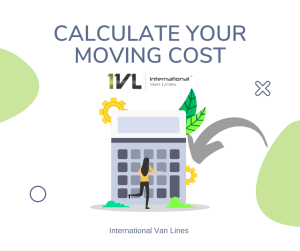Choosing the Best Time to Move (and Why No Season is Perfect!)

We all know that patience is a virtue. But when it comes to moving, patience can be an especially lucrative virtue. Why? Let me explain. Human nature being what it is, most people decide that “the best time to move” is shortly after they make their decision to move. But that’s rarely true. In fact, waiting is often a wise move, and there are often a whole host of reasons to delay a bit. And the biggest reason of all—the one that matters the most to the largest number of people—is cost.
So if you’re already boxing up your grandmother’s silverware, put down the wrapping paper and tape, put the boxes away, and take a deep breath. Then scroll through the collection of tips below to find out why thinking a bit more strategically about time, as you plan your move, can help you save money and enjoy a more positive moving experience.
General Tips

Before we delve into a detailed discussion of time and moving, here are a few very general time-related moving tips:
- If you’re a renter planning to move, first do a cost-benefit analysis in relation to your lease. If it’s up soon, no worries. If it’s up in six months, however, and your landlord is known for being empathy-challenged, think about whether the inevitable penalty resulting from a broken lease is worth the expense. Do you really have to move immediately? Would it kill you to put in a bit more time at your current residence? A little patience can go a long way if you’re able to leave your old residence penalty-free. That money could come in very handy.
Read Here: The Best Moving Companies of the Year
- If you’re a renter, you also need to think more broadly about whether you can actually afford to move in the very near future. After all, moving means you’ll have to scrape together a security deposit, the first and last months’ rent, and enough to cover all moving expenses. Are you in a position to do that? Will you be in a better position a little later on? Definitely something to think about.
- Finally—and many people don’t know this, or under-rate its importance—the season you move has a dramatic impact on prices, affecting everything from your ability to hire good movers to whether you can rent – or buy – in your new community. Here are several points to think about with respect to moving and the time of year:
Is Summer the Best Time to Move?
Positives
Ah, summertime. Long, warm, and generally pleasant days. Less traffic. Abundant—or semi-abundant—free time. This is the peak season for movers and those moving. Half of Americans who move every year choose to do so during the summer months. And summer has definite advantages, no doubt about it.
For those who have children, keep this in mind: summer moves give kids the time they need to adjust to a new environment—that is, before they have to start attending a new school. It puts less pressure on them. For adults, too, this time of year offers more opportunities than any other season to get organized, meet the neighbors, and get a sense of where everything is, like supermarkets, schools, and clinics. Summer is a quieter, slower-paced period that doesn’t automatically punish people for taking a little extra time.
For renters, there’s also this: most leases come to an end in the summer, meaning this season is often the ideal moment to pull up stakes and make a fresh start. You don’t have to worry about paying a penalty for breaking your lease.
Read Here: Tips to Pick the Best Moving Company
Negatives
Ah yes, the “cons” of a summer move. Supply and demand being what they are, prices are higher in summer and the chances of snagging the services of a highly reputable professional moving company are somewhat lower. It becomes much, much harder to schedule exact moving dates during the summer season, and—more frequently than not—smaller moving companies are forced to rely on seasonal employees whose knowledge of the logistics of moving is limited (and that’s being generous). And as a lot of Taylor Swift fans know only too well, when a lot of people want the same thing at exactly the same time–like TS concert tickets–the results are predictable: high prices, limited or zero choice, and terrible inconvenience.
In addition, though summer is generally pleasant in much of the United States, the heat can be oppressive in certain regions. A full-blown house move in late July in Phoenix, Arizona, for example, can be a real downer, for obvious reasons.
Moving During the Fall
Positives
The leaves are a lovely shade of gold this time of year, the weather is cooler—but still comfortable—and conditions, from mid-September onward, are often perfect for a move. Sure, the risk of rain is a bit higher than in August, but you still get plenty of clear skies. In autumn, you avoid the extremes of summer and winter and you can take advantage of the fact that a lot of people have already finished moving, meaning the moving companies have more time—and more personnel—to help you get your stuff where it needs to go. You can usually get the dates you want. And crucially, prices tend to be lower than they are in summer—a major plus.
Read Here: Things to Keep in Mind if You’re Moving Overseas
Also, a fall move gives you a great opportunity to get acclimated to your new residence before the holidays, which—let’s be honest—is an immensely stressful time of year for many of us.
Negatives
Like anything else, fall has its negative aspects—or potential negative aspects, depending on your circumstances. A fall move lets you settle in before the holidays, it’s true, but for anyone who’s struggling a bit financially, saving money for both a move and the holiday season can be extremely burdensome.
There’s also this: if school-age children are involved—and your kids have to switch schools in the middle of fall—there are real risks associated with missed instructional time and the pain (temporary, but still real) of your kids having to say goodbye to some really good friends.
Read Here: Top 5 Destinations in the Southern United States
Also, if you move to a new location in fall—and that town or city happens to be home to one, or even several, major educational institutions, you’ll find yourself competing directly with the incoming college students for a place to live. Several years ago this was less of an issue, as the student population was smaller and tended to snap up the cheaper rentals.
But that’s now changed. It seems that Gen Z has more refined tastes than the Millennials, and many rent more upscale accommodations with help from their parents and relatively flush friends. This not only affects housing options, it pushes rents upward. This is less of an issue if you’re moving to a small or medium-sized town that doesn’t host a college or vocational school—but if you’re on you’re way to, say, Gainesville, Florida, or Columbia, Missouri or Hanover, New Hampshire—or parts of New York, LA, Chicago or Boston—it may be wise, if you’re renting, to ditch the notion of a fall move altogether and look carefully at other options.
Moving in Spring
 Positives
Positives
Spring is a time for new beginnings, and for many of us, it’s the season when a big move makes the most sense. Why? Well—like fall, the weather is often ideal, with mild temperatures, and by pulling up stakes, you get the jump on everyone else who’s planning a big summer move. A move in spring–especially early spring–is the equivalent of a sneak attack! It shows you’re smarter AND better organized. Moving dates haven’t been snapped up yet, hiring good movers is straightforward, and prices are still well below what they’ll be at their peak in summer. Even late spring is relatively buyer-friendly compared to summer. Spring is a natural time for renewal, and many, many people consider spring the best time to move for exactly that reason. They want a fresh start.
Apartments and other rentals also tend to offer move-in specials this time of year, there are fewer incoming students to compete with (and many are breaking leases and going home), and—overall—it’s just a quieter and cheaper time to move.
Read Here: Tips for Moving in After Marriage
In short, for anyone who doesn’t have school-age children and is trying to decide when to move, spring has a ton going for it. Some people also like the idea of getting used to a new home in the run-up to summer, at which point they’ll be in a perfect position to explore, barbecue, hang out with new friends, and maybe lounge on the beach or by the pool, reflecting on the fact that they now have the summer to think about everything except moving.
Negatives
Now, it’s true that “spring showers” are called “spring showers” for a reason. It’s not a random choice, and, admittedly, spring can be a bit damp. It’s also allergy season for many as pollen starts to fill the air and take up space on the ground. And most kids are still in class, which for many parents is a deal-breaker when it comes to moving. Understandably, they don’t want to pull their kids out of school so close to the end of the school year. Making new friends at a new school at that time of year is a tough ask–especially as most students are starting to wind down for their summer break. These are very real negatives and it’s important to keep them in mind if you’re considering a springtime move.
Moving During the Winter Season
Positives
Let’s not beat around the bush. The winter months—if you can swing it—offer tremendous upside. Movers aren’t busy, rates are exceptionally low, deals are abundant, and you can pick the dates you want without difficulty. January and February, moving’s “off-season,” tend to be especially deal-rich. If you’re looking hard at the local real estate market, it’s also the best time of year to buy a house (though not to sell–obviously!). Housing prices typically slide in very late fall as the market slows, and finding a good deal in winter becomes significantly easier.
Read Here: Best Reasons to Move to Florida
Also, apartment communities tend to cut their rates during the winter months and moving companies are looking to keep their guys busy, so deals are everywhere. You’re also in a prime position to negotiate rents and other fees (for storage space for example–if you’re in a mind to haggle—because this is the time of year when buyers, not sellers, rule the roost). One under-appreciated benefit of moving in winter is that each and every one of your personal possessions is more likely to get where it’s going perfectly intact. In summer, by contrast, temperature changes can wreak havoc on sensitive items; heat, in particular, can warp, melt, and stain in all sorts of interesting and creative ways.
Negatives
Just as conditions in spring or summer often make moving easier and more comfortable, conditions in winter can make it harder and more painful—and for obvious reasons. It’s often super-duper cold, and ice and snow present a dual threat. It’s not only less comfortable to move in extremely cold weather, it’s more dangerous, and the risk of slips, falls, drops, and other accidents rises dramatically.
The short days limit the hours movers can work, and some moving inevitably takes place at dusk or after sunset, which is never ideal. And remember this: while you can typically have your pick of potential moving dates in winter, the season is also filled with a ton of time-sucking commitments stretching from Thanksgiving to New Year’s. You’ll be busy, in short, even if a lot of movers aren’t. The holidays can sap your energy and focus, and you may find yourself wishing you’d planned your move over a long, stress-free weekend in late August.
The Upshot
In short, every time of year has its pluses and minuses when it comes to picking the best time to move. There is no “best time to move” in an absolute sense because every individual or family is different! That said, there’s definitely a season that’s right for YOU. Summer, spring, winter, or fall — take all the time you need to decide. You’ll thank yourself later.
International Van Lines: The World’s Premier International Moving Company
IVL is the world’s No. 1 moving company. No one else even comes close. (And to be honest, no one’s been close for quite some time). Whether we’re moving you across town, across the state, from one coast to another, or from one continent to another, we get your personal possessions where they need to be–fast.
Based in Coral Springs, Florida, but now serving more than 180 countries worldwide, IVL’s reputation for professionalism—and for unrivaled excellence–continues to grow.
Over the past 25 years, we’ve mastered every aspect of full-service, door-to-door relocation.
Check out our rankings in publications like Forbes, USA Today, US News, and Consumer Affairs to get a sense of how IVL operates and what IVL can do for you. These are rankings we’re incredibly proud of and that we work tirelessly to maintain. Even more importantly, customer reviews of IVL at Trustpilot average 4.8/5 stars, a remarkably high figure in an incredibly competitive industry.

Remember, we treat your personal possessions as if they were our own. Wherever they’re headed, and however quickly you need to get them there–IVL stands ready to help.
Click here for your free moving quote today!
Why IVL?
A simple question with a simple answer: IVL is the best international moving company on planet Earth–the best-equipped, the most adaptable, and the most experienced, with a tremendous team of professionals guiding operations from our HQ in Coral Springs.
The inevitable result? Domestic or international relocation becomes a smooth, predictable, and worry-free process.
IVL also has a global reach that our competitors can only dream of. Wherever you need to go—we can get you there. But we also get you there in a way that ensures that every single one of your possessions arrives in pristine condition. That’s a promise.
IVL’s Approach
When we move your personal possessions around the block or between continents and across international borders, we typically rely on one–or all–of the following transport methods:
1) Our enormous and growing fleet of high-end moving trucks and vans,
2) Air freight
3) Ocean freight.
But whatever means of transport we rely on to get your household goods to their final destination, remember: we treat our cargo—i.e., your cargo—with enormous care at all times.
Remember too, as a full-service moving company, with decades of experience, we know every potential obstacle en route to your destination. We know all the angles. All the tricks. We’ve done it all before.
How Much Will My Move Cost?
The cost of moving obviously varies, depending on your destination and the difficulty of getting your things to that destination. Feel free to check out our moving cost calculator to get a better feel for the numbers involved. Moving costs inevitably ebb and flow in response to many different variables—fuel costs in particular. Whatever the total amount, IVL is always fully transparent with you—the customer—when it comes to all fees and charges. The final bill is never a surprise.

IVL team members at company HQ in Coral Springs, FL.
What Moving Services Does IVL Offer?
IVL’s moving services, international or domestic, are comprehensive and door-to-door. Here’s a brief overview of what IVL offers:
- Full-service packing and unpacking.
- Furniture assembly and disassembly.
- Personalized services for high-value and/or especially sensitive items (art, antiques, etc.).
- Comprehensive ocean and/or air freight services combined with the use of moving trucks and vans.
- Rubbish removal.
- Domestic or international vehicle transport.
- Storage services (domestic and international; short-term, long-term, climate-controlled).
- Full customs clearance management.
- Liability protection, including full value protection.
- Full corporate relocation and military relocation services.
- Live chat and customer service 24/7.
- Easy shipment tracking.
What Else I Should Know?
To promote the speed and efficiency of your move, IVL may partner with one or more local moving service providers at certain points of the moving process. There is also a 25 percent deposit required to reserve a moving date.
Is IVL Licensed?
Yes. IVL is licensed by DOT, FMC and AMSA (the latter having been recently absorbed by ATA).
Contact IVL Today. For Your Free Moving Quote Click Here!















